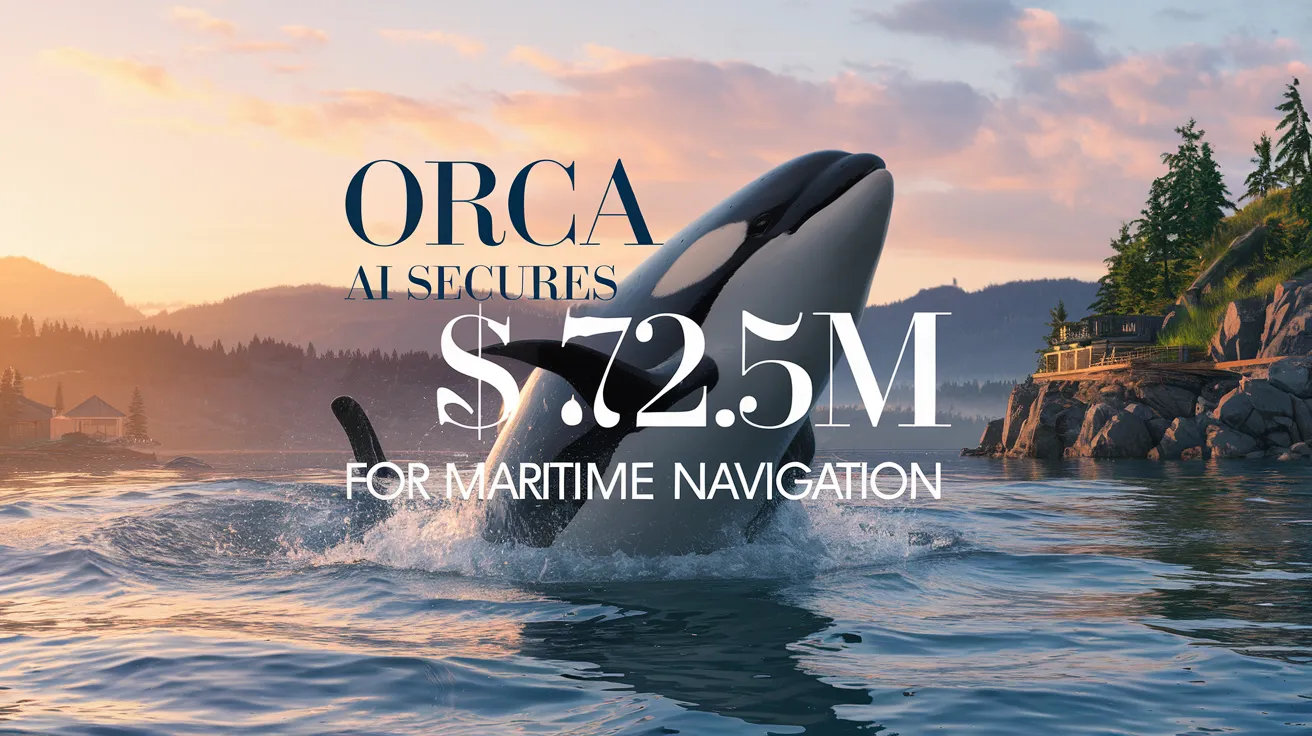Orca AI Secures $72.5M for Maritime Navigation

The autonomous navigation sector is undergoing significant growth, with projections suggesting a market value exceeding $11 billion by 2028. This potential has attracted substantial investment, and Orca AI has recently emerged as a key competitor, successfully closing a Series B funding round of $72.5 million led by Brighton Park Capital. Other notable investors, including Ankona Capital and Hyperlink Ventures, have also backed the London-based company, bringing its total capital raised to over $111 million including a previous $23 million round.
Founded in 2018 by CEO Yarden Gross and CTO Dor Raviv, Orca AI harnesses AI-driven decision making and autonomous technology to enhance maritime navigation. Their innovation is backed by an extensive marine visual dataset that spans more than 80 million nautical miles. By integrating AI into shipping operations, Orca AI aims to reduce collision rates, thereby allowing crew members to devote attention to other critical voyage aspects.
Gross highlighted the firm’s predominant focus on the commercial sector, where they have established various collaborations and proof-of-concept projects. However, he also noted a growing interest in defense applications from navies worldwide that are seeking cost-efficient vessels capable of operating autonomously with minimal human oversight. The company’s first defense contract has already been signed and is currently deployed on a navy ship, marking a significant milestone in its expansion into this sector.
Moreover, Orca AI’s growth trajectory is further bolstered by its partnership with Starlink, which facilitates real-time data transfer from vessels. This capability enhances route mapping, traffic oversight, and the sharing of vital information. Gross emphasized the importance of this collaboration by stating, “Starlink enables us to collect data at scale directly from the ship’s sensors. We view this as a tremendous opportunity.”
A recent analysis in 2024 revealed that Orca AI’s alert system could lead to a 54% decrease in potential close encounters, translating to an average fuel savings of $100,000 per vessel annually. Such findings underscore the potential effectiveness and cost-saving implications of deploying AI in maritime navigation.
Orca AI is not alone in this field, with other players such as Avikus, a subsidiary of Hyundai HD, and Sea Machines also developing autonomous navigation solutions. However, Orca AI’s recent funding success, coupled with burgeoning interest from defense sectors and the advantages provided by Starlink, positions it favorably within the rapidly evolving landscape of autonomous maritime technology.